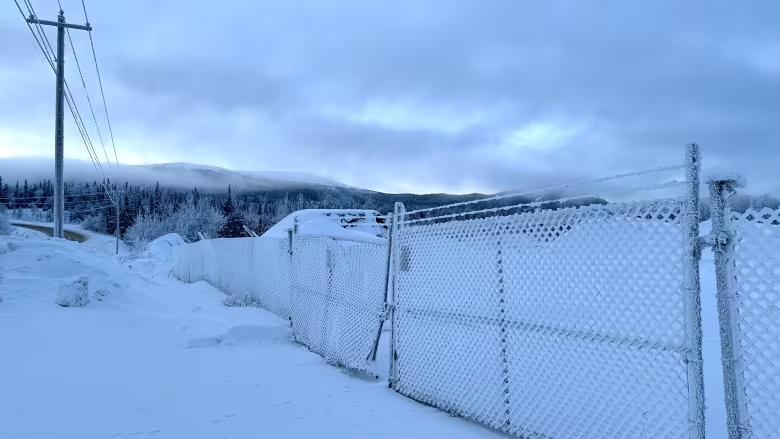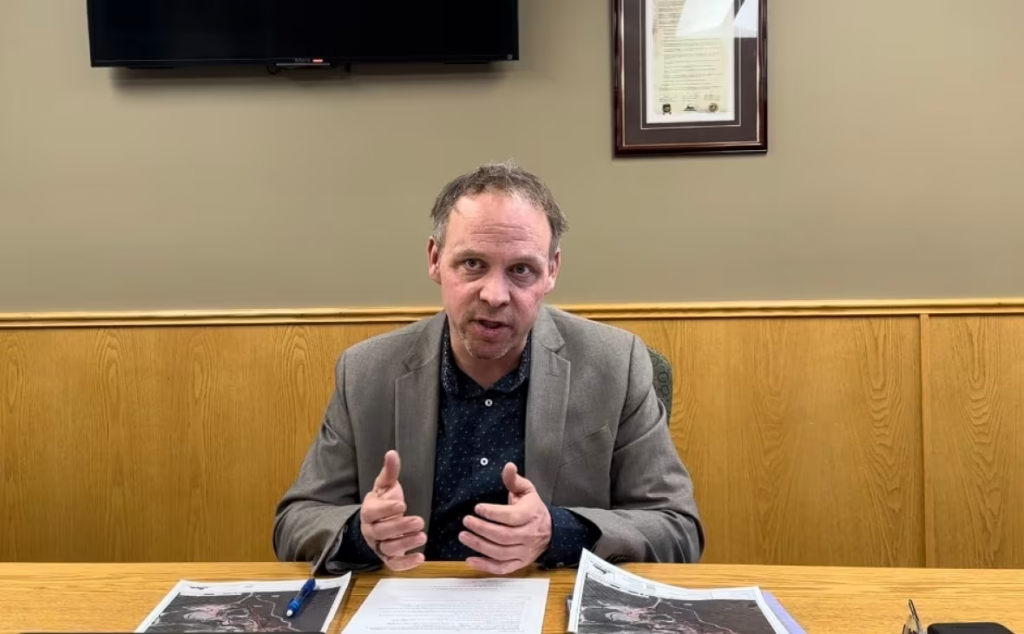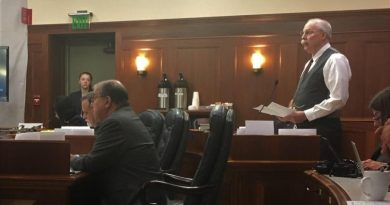Gladiator Metals gets permit to drill within Whitehorse city limits

By · CBC News
Some residents wish they could have had a platform to express concerns before permit was approved
The City of Whitehorse has given a mineral exploration company permission to drill and look for copper within its municipal limits.
Gladiator Metals’ drilling will take place at 16 sites in a 29.8 hectare area, or approximately two and a half football fields, near Mount Sima and Copper Haul Road. The sites are in an area with industrial zoning southwest of the city centre, near the former Whitehorse copper tailing pond and existing gravel quarries.
The company is focused on exploration, but may choose to sell its claims along the Whitehorse copper belt to a mining company in the future. A mine would require different permits than exploratory drilling.
Mike Gau, director of development services with the City of Whitehorse, acknowledged that some residents may be uneasy about the project in light of the company’s track record.
“We’ve attached a number of conditions to address concerns,” he said. “There won’t be any storage of hydrocarbons on the site, there’s no chemicals planned to be used in this activity and the noise is going to be monitored and mitigated as required.”
Gau noted that the permit does not allow any clearing, and that the vegetated mat will stay intact.
While the company has claims that span nearly 30 per cent of McIntyre Creek, Gau also confirmed that the permit the city has just approved exclusively pertains to areas with industrial zoning.
“The official community plan designation for the proposed McIntyre Creek Park is green space,” Gau said. “In order for exploration to occur, we’d have to go through an official community plan amendment process approved by council, and that would involve engagement and a public hearing process.”
Several Whitehorse residents expressed to CBC that they wished they could have had a platform to express concerns prior to the permit’s approval.
But Gau said the permit procedure does not allow city staff much room to consider the impacts on residents in its decision.
“If an application is compliant with the zoning bylaw and with our conditions and policies, the city must issue a permit,” said Gau.
Mining in municipalities
That’s an issue that’s been on Yukon Minister of Mines John Streicker’s radar.
Streicker said that while legislative tools exist to address the environmental impacts of mining and development, there are fewer options for municipalities to deny exploration permits on the grounds that it might interfere with quality of life for residents.
“Every exploration project that happens across the Yukon, we will watch for environmental impacts, especially on critical species and habitats,” said Streicker, who spoke with CBC News about the Gladiator permit last month.
“This issue with Gladiator is much more about ‘now we’re close to our community.’ So now there’s that conflict where people want to make sure they have quiet neighbourhoods, and you’ve got industrial exploration happening nearby.”

On Dec. 2, Streicker said he met with members of the Association of Yukon Communities to discuss territorial legislation being developed to address mining within municipalities.
Over the past few years, the Yukon government has been engaging with both residents and municipal leaders on the issue. The aim is to find ways to preemptively address land use conflicts and incorporate community values into the permit decision-making process.
“We’re talking about bringing forward a framework that’s going to support them,” said Streicker, adding that municipalities have a right to determine what happens within their boundaries.
“What we’re proposing is, [municipal planners] could approach us and say they would like to see a staking ban within the municipality, and then we could work to get that in place on their behalf.”
Possible financial, environmental benefits
While it may come with impacts for local residents, development within municipal boundaries has unique appeal for industry.
A mine that comes with access to an existing airport, roads and infrastructure substantially lowers overall costs and can reduce a project’s ecological footprint.
In an email to CBC News on Dec. 14, Marcus Harden, Gladiator Metals president, said that if a copper mining project were ever to be developed in Cowley Park, a drill site just outside of Whitehorse, it could be incredibly energy efficient in comparison to other projects.
For now, the company is still in the exploration phase, but Harden promised ongoing contact and engagement with community members.
“In the coming months, we will be focused on gaining a clearer understanding of the full size and scope of the mineralization,” he wrote. “[We] will be sharing this information with the public regularly through news releases and community events.”
Related stories from around the North :
Canada: Bill requiring First Nations’ oil and gas development consent spiked in Yukon, CBC News
Norway : No foreign companions as Gazprom prepares well drilling in Arctic waters, The Independent Barents Observer
USA : Peltola flips script on long-running congressional drama over Arctic drilling, Alaska Public Media



